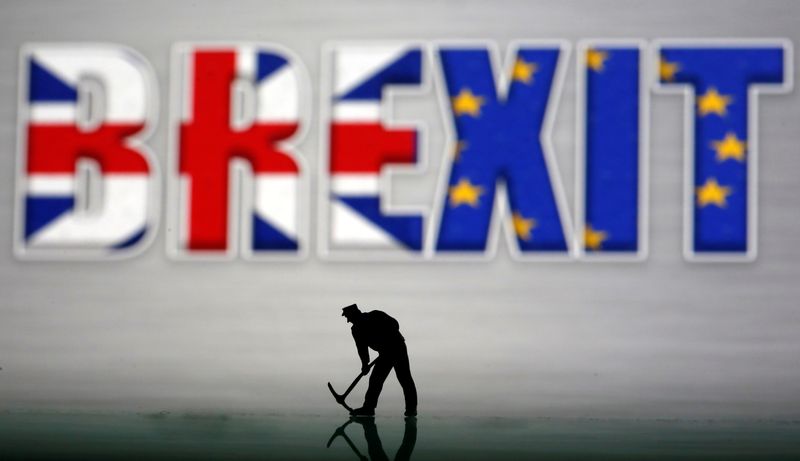By Suban Abdulla
LONDON (Reuters) - Nine in 10 British manufacturers still face problems doing business with the European Union and difficulties in hiring skilled workers due to Brexit, according to a survey that showed the lingering impact of Britain's exit from the bloc.
Britain signed a Trade and Co-operation Agreement (TCA) in December 2020 with the EU to allow tariff-free trade.
But, trade body Make UK said 90% of businesses felt post-Brexit trading arrangements were still disrupting trade with the 27 member-state bloc.
"Since Britain left the EU, companies have had to deal with the new trade arrangements of the TCA merging with global disruption brought about by the COVID pandemic," Stephen Phipson, chief executive of Make UK, said.
Accessing skilled staff from the EU remained an issue for firms three years after the end of free movement of workers, with 44% of companies noting difficulties.
"Changes to the UK's Shortage Occupation List of necessary skilled workers has been slow to recognise the record labour shortages across the sector," the report said.
Make UK said Britain should work with the EU to simplify customs paperwork, introduce a trade programme to improve the export of goods between the UK and the bloc, and make it easier to access EU workers to help alleviate skills shortages.
British Prime Minister Rishi Sunak is under pressure to reduce record levels of migration, one of his five key pledges t voters before an election expected next year with the opposition Labour Party leading in opinion polls.
The government announced plans for stricter visa measures on Monday to cut the number of migrants arriving by legal routes, something trade unions and businesses say will create more challenges.
Despite facing border delays and problems with customs paperwork, nearly three in four firms were exporting to the EU, Make UK's survey of 219 manufacturers showed.
Sunak eased tensions with the bloc earlier this year by striking a deal on post-Brexit trade rules for Northern Ireland and in September reached a separate agreement to rejoin the EU's Horizon science research programme.

But business investment in Britain has largely flat-lined since the Brexit referendum in 2016.
Keir Starmer, leader of the opposition Labour Party, has promised to improve the trading relationship if his Labour Party wins an election that is expected in 2024.